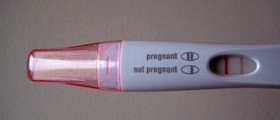
A blood test is certainly a standard aspect of every doctor's prenatal care. If you test negative for the Rh antigen, the type of care you receive will change a little. If your partner is Rh positive and you are not, the baby you are carrying can still be positive. If your baby's blood mixes with yours, even in small amounts, this can cause problems during this pregnancy or a subsequent pregnancy. The problem lies in the so-called sensitization, a process after which your body can start attacking your RH positive baby's blood as a hostile element, just like a disease. If you are Rh negative and pregnant, you will need a test for Rh antibodies that can attack Rh positive blood.
If you have not developed these, the treatment is actually relatively simple. You will need a shot of medication that can prevent sensitization of RH negative moms to be. This medication is available under several brand names, but Rhogam is the most well-known and commonly used of these. You will receive this shot sometime before your due date, and might get additional ones while you are in labor and immediately after giving birth to your baby. Mothers who have already been sensitized are high risk in pregnancy. The mother's body can attack the baby's blood to such an extent that it can cause severe anemia and even death, so if you have been sensitized, you will need to be closely monitored. It is even possible to carry out blood transfusions in utero.
- www.nhs.uk/conditions/rhesus-disease/diagnosis/
- www.nhs.uk/conditions/rhesus-disease/
- Photo courtesy of National Eye Institute by Flickr: www.flickr.com/photos/nationaleyeinstitute/9955279835/

















Your thoughts on this
Loading...